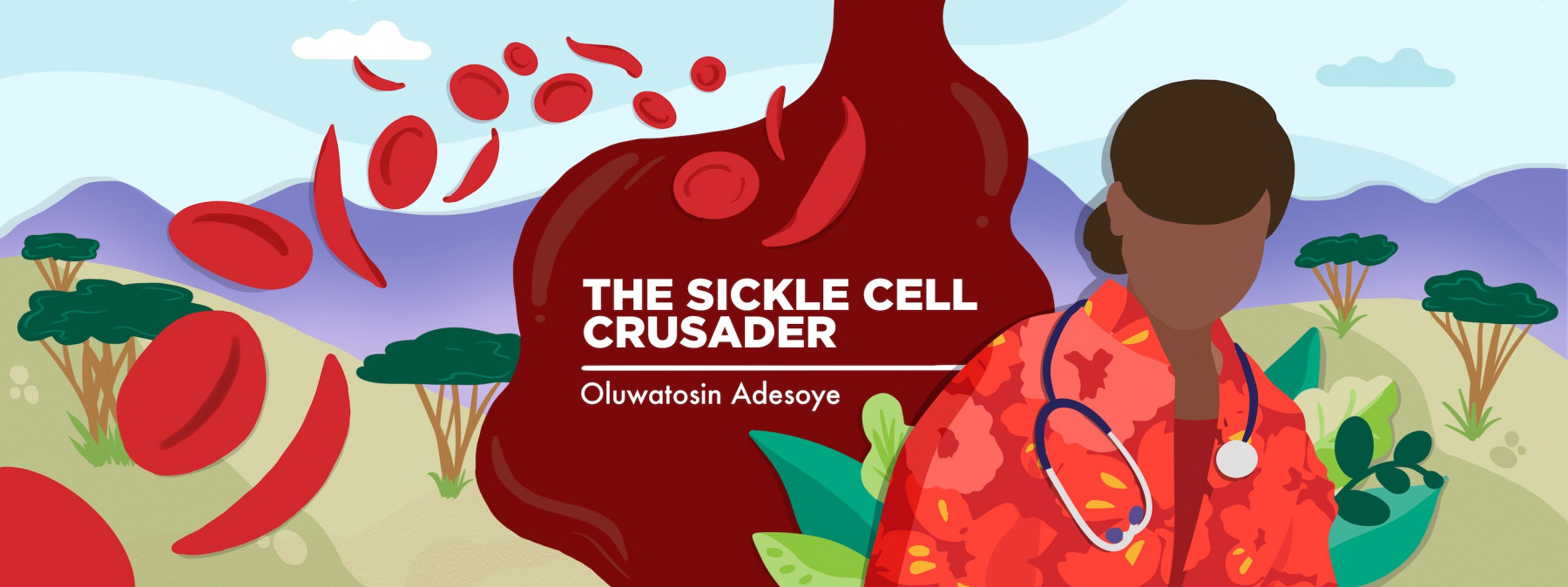Expressing gratitude for the irreplaceable caregivers in my life
A columnist shares how blessed she is to have an extraordinary support system
Written by |

As I reflect on my life’s journey with sickle cell disease, I’ve concluded that one of the most important factors in managing it is having a sound support system.
A great support system has made the journey easier and the load lighter for me, alleviating some of my challenges. This reflection filled me with immense gratitude for the extraordinary people who have been my rock and a pillar of strength throughout my life. It prompted me to write a heartfelt tribute to these exceptional caregivers.
My beloved mother, who is the epitome of selflessness and compassion, gets my unreserved accolades. She constantly sacrifices her time, work, money, and emotions for me without hesitation.
When I was born, she gave me the nickname “egg” to warn everyone to handle me with care. For almost four decades, she has provided me with the utmost care, love, protection, and everything else I need that is within her capacity.
She is my best advocate, always fighting for my rights and ensuring that I receive the best care possible. Her support has helped me push through the most challenging times, and the impact she’s had on my life is immeasurable.
My dad has always been my biggest cheerleader and backbone. He’s been a positive factor in my life since I was born. Daddy is always there to lift my spirits and make me feel better during both good and bad times. He is another irreplaceable force in my life.
During my childhood, my aunt was one of my best caregivers. When my mother was away for work, my aunt stepped in to provide a safe and nurturing environment. I remember how she wouldn’t allow my siblings or anyone else to be physically aggressive with me. I’ll never forget her love and dedication.
My elder sister has been my guardian angel in life. She has always taken care of me as if she were my mother. I vividly recall her selflessness as she cared for me during sickle cell crises, distracting me from the pain. Even in our adult years, she continues to prioritize my well-being, adjusting her busy schedule to be present for me during both difficult and good times. She offers me a listening ear and a comforting presence. She’s a caregiver and much more.
I call my younger sister the “ever dependable sister.” She always tries her best to support me and help me achieve all of my goals. She comes through for me every time. She is my cutest cheerleader, and I always feel blessed to have her by my side.
My brothers, both older and younger, have been efficient backbones and caregivers. My younger brother even saved my life some years ago.
I had a stubborn infection that was complicated by hemolytic anemia, and my hemoglobin level plummeted to 4.6 g/dL. Weak and struggling to breathe, I was hospitalized and in dire need of a blood transfusion. Multiple doctors attempted but failed to establish viable IV access. My younger brother, a doctor himself, selflessly arranged for a colleague to cover his shift at his workplace, traveled to my location, and tirelessly searched for a vein throughout the night until he successfully secured IV access for a lifesaving blood transfusion. This is one of the reasons he is my hero.
During my first year at the university, my cousin stood out as a compassionate caregiver. She was always ready to provide care and assistance during my sickle cell crises, even at the expense of her own well-being. She left an indelible mark on my life despite our limited time together.
My best friend of almost 15 years, who appeared in the darkest period of my life, is unforgettable. I was in my clinical years in school and dealing with numerous complications while trying to excel in my studies. He remains one of the most impactful caregivers in my life, and he sacrificed a lot to help me through the toughest period. Succeeding together is a testament to great caregiving and friendship.
My assistant of almost 20 years is my ever efficient caregiver. She’s an excellent support system who has been with me through the ups and downs of the disease, and I cherish her.
I can also never forget my fabulous brother-in-law, who has shown remarkable care and support. He’s always there to lend a helping hand. A blessing!
Managing sickle cell disease is challenging. But caregivers have the power to ease this burden by establishing a supportive environment, getting educated about the disease, showing empathy, being patient and compassionate, practicing effective communication, and advocating for a patient’s needs.
Note: Sickle Cell Disease News is strictly a news and information website about the disease. It does not provide medical advice, diagnosis, or treatment. This content is not intended to be a substitute for professional medical advice, diagnosis, or treatment. Always seek the advice of your physician or other qualified health provider with any questions you may have regarding a medical condition. Never disregard professional medical advice or delay in seeking it because of something you have read on this website. The opinions expressed in this column are not those of Sickle Cell Disease News or its parent company, Bionews, and are intended to spark discussion about issues pertaining to sickle cell disease.




Leave a comment
Fill in the required fields to post. Your email address will not be published.